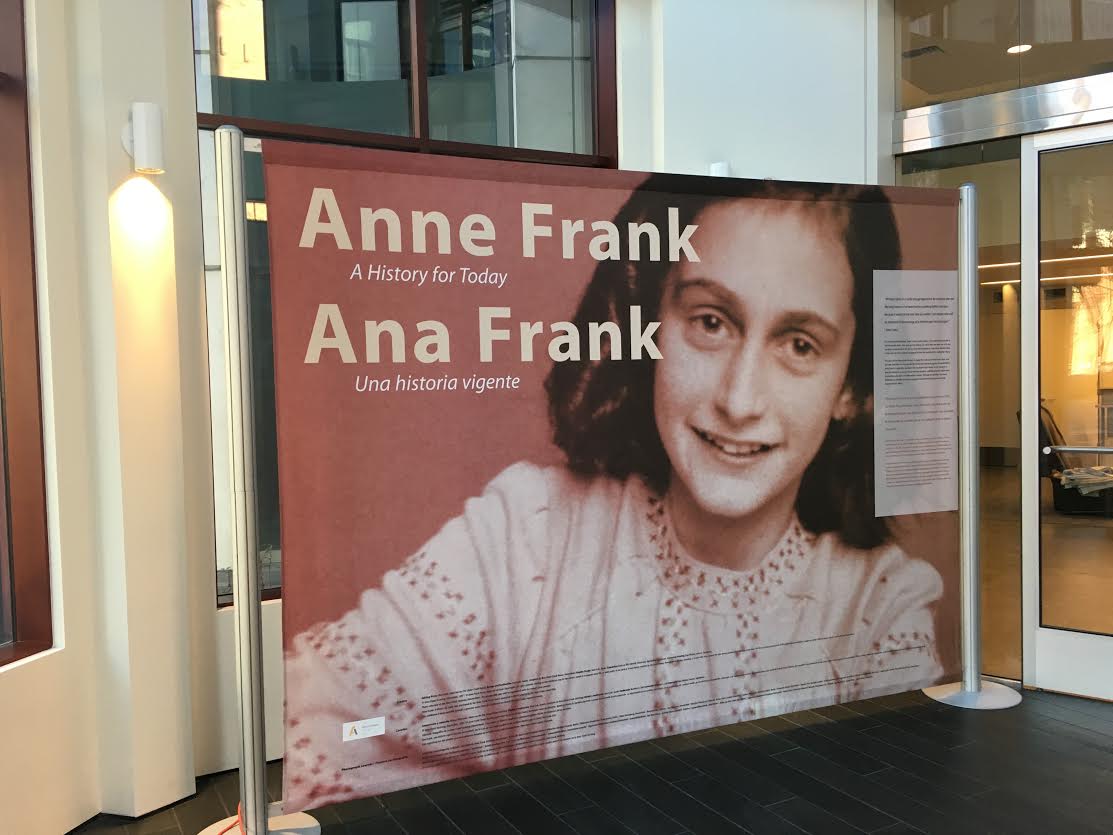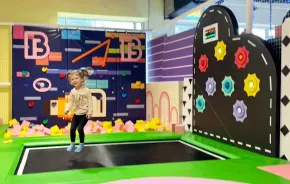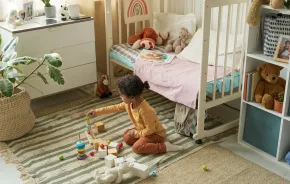
When my older daughter finished reading chapter 1 of Anne Frank: The Diary of a Young Girl, she looked up at me and said, “I’m so depressed.”
“I know!” I said. “To think such a good writer only had the chance to write this book, and to die like that.”
“Exactly,” she replied.
This weekend I plan on taking both of my daughters to see the traveling exhibit Anne Frank: A History for Today at the Henry and Sandra Friedman Holocaust Center for Humanity in downtown Seattle. On display through May 18, 2016, this exhibit presents a history of the Holocaust through Anne’s life story. (It was developed by the Anne Frank House and is sponsored in North America by The Anne Frank Center USA.)
“Even if you know her story, it personalizes her and gives the situational context as she was writing her diary,” says Ilana Cone Kennedy, the center’s director of education.
Frank's story is told timeline style. Each panel is split in half: the top tells Holocaust history while the bottom shows what was happening with the Frank family at that same time.

“This is just a fabulous exhibit. I have to tell you, we had so many people come through on our first day,” says Kennedy. “Anne Frank is a universal human figure of this very terrible time period who suffered for no good reason. We’ve made her larger than life, but really she’s just a regular kid, a 13-year-old girl who’s thoughtful and a little annoying and she doesn’t like her mom.”
 Although the museum's core exhibit is not displayed while the Anne Frank exhibit is up (read a review here), some artifacts from local survivors are still on display. While the center officially recommends the Anne Frank exhibit for fifth graders and up, Kennedy has seen parents show certain pieces of the exhibit to second and third graders and believes parents can judge if their children are ready to learn some of this story.
Although the museum's core exhibit is not displayed while the Anne Frank exhibit is up (read a review here), some artifacts from local survivors are still on display. While the center officially recommends the Anne Frank exhibit for fifth graders and up, Kennedy has seen parents show certain pieces of the exhibit to second and third graders and believes parents can judge if their children are ready to learn some of this story.
“Ultimately, we are learning to respect our differences, how we need to help each other and that our own individual choices matter. We don’t live in our own bubble. We have to extend a hand to each other and speak out when we see intolerance,” says Kennedy.
When you visit, the center’s staff are on hand to give parents and children the contextual context needed to understand Holocaust history. Kennedy encourages parents to ask for resources.

If you go ...
Tickets: $5–$10; Important note: Reservations are required for entry; reserve tickets here.
When: Anne Frank: A History for Today will be displayed until May 18, 2016.
Hours: The Holocaust Center is open Wednesdays and Sundays, 10 a.m.–4 p.m. (Note: The museum is closed Sunday, May 1 for their Holocaust Remembrance Day Program.)
Where: 2045 Second Ave., Seattle, WA 98121
Information: For more information, call 206-582-3000 or go to their website. Read our initial review of the Holocaust Center.











